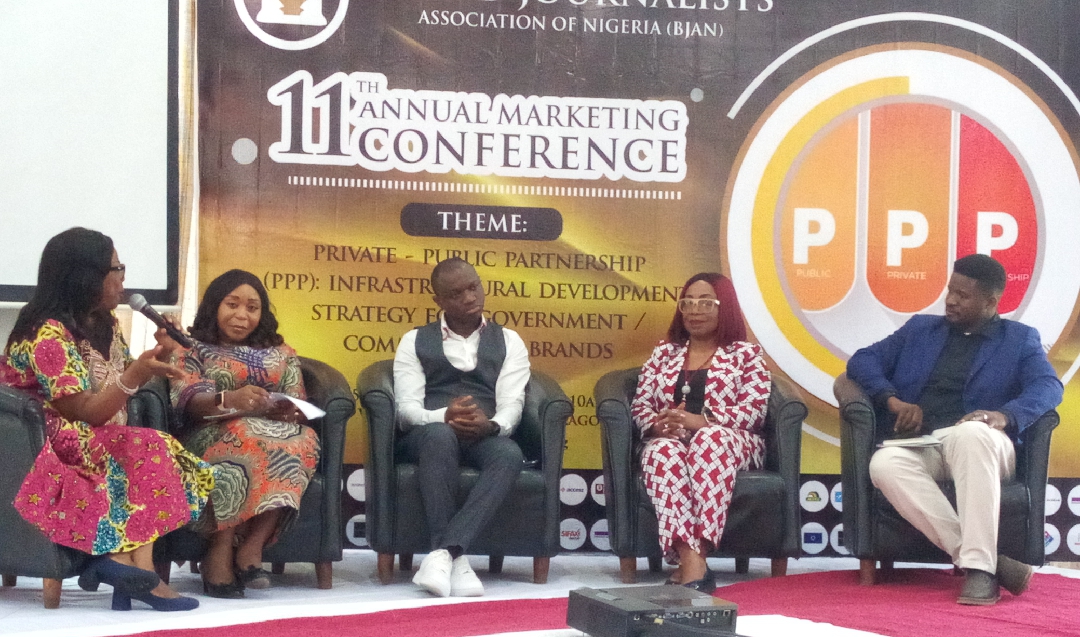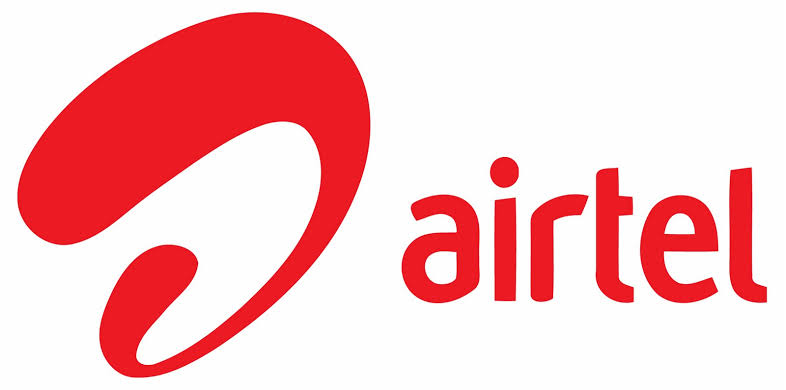By Felicia Nwosu
The need to deepen quality community engagement and participation to strengthen Public Private Partnerships (PPP) goals by giving communities voice, enfranchising and mobilizing them to enhance positive impacts formed the crux of the panel discussion at the just concluded annual conference by the Brand Journalists Association of Nigeria (BJAN), held at the high profile Oriental Hotel, Lagos.
The media group also held its annual award to recognise outstanding individuals, agencies and brands who have distinguished themselves with operational excellence in the year.
Some of the awardees include Chris Wulff-Caesar, FrieslandCampina’s Marketing Director, Sub-Saharan Africa, who emerged
the marketing Director of the Year; New Crystal Communications as OOH Company of the Year; Digisplash won Best Young Digital Agency of the Year, while Terra Seasoning won Seasoning Brand of the Year among several other winners.
The event themed: “Public-Private Partnerships (PPP): Infrastructural Development Strategy for Government /Communities/Brands” was the 11th edition of the association’s annual conference.
The panelists comprising diverse industry personalities unanimously noted that, though the government prepares PPPs, implemented by the private partners and the investors, the beneficiaries who would be impacted by such projects should also be carried along. They reckoned that such approach would improve the development outcomes from PPPs when community inputs are resourced and mobilised, adding that it will discourage resentment to development.
According to them, giving communities voice in a project helps government to deliver services valued by the community, attain and sustain support to manage risks and mitigate against misconception of ideas.
Moderating the well-attended event, Sola Salako-Ajulo, Honourable Member,(South-West) Consumer Protection Tribunal pointed out how the government can strengthen engagement by encouraging transparency, accountability, monitoring and evaluation. She also statex why the government should tackle the challenges of bureaucracy and other bottlenecks associated with governmental programmes to pursue the best method of engagement in order to encourage brands and communities to harness the inherent benefits of PPP programmes.
The moderator wondered how safe it is for reputable brands that have strived to attain growth and trust from consumers to get involved in such financial framework, when there are risks that could affect the perception of their brands, including government indecisiveness, insecurity and insincerity.
Speaking on the role and perspective of brands to PPPs, Victoria Uwadoka, Corporate Communications & Public Affairs Manager at Nestlé Nigeria, revealed that her company had already established a programme that infuses the well-being of communities in all its projects.
“For us, our Nestle factories at Agbara, Ogun Sate was built many years ago – since 1960. So the land belongs to different communities. And as a corporate, we pay our dues. We do what needs to be done. We actually audit ourselves and hold ourselves accountable more than any other person holds us accountable.
“We are a global brand, we are not here to play, anything that happens in Nigeria will affect all the brands across the world. Just know that we are fully compliant, 125% compliant; that is our goal,” she said.
Responding to this, the keynote speaker, Dr. Olajumoke Akiode, Convener, Women in Infrastructure Community Africa’s (WICA), who also formed part of the panelists session, explained that government has to expand its value offerings by squeezing more business portfolios out of the existing projects to boost the potential benefits in the PPP project.
The passionate PPP enthusiast revealed that government can promote such programmes by ensuring that it leverages existing projects to create other multifaceted income and revenue earning while also providing multichannel business opportunities for communities to access at affordable rate to make life easier for them under the same roof.
Adeola Kayode, Head of brands & Creative Services, 9Mobile, suggested that the government needs to add an extra letter ‘P’ to the existing 3 ‘Ps’ to deepen its projects and initiate orientation programme for more people, to demonstrate the importance of the people.
He also enjoined the government to seek ways to compensate affected individuals who became victims as a result of infiltration to their personal properties caused by any ongoing project.
“Government has a responsibility to ensure that they have done their due diligence and they can decide if they want to have a contract with them. So, on our own part, in the case of PPP, for huge projects that need to pass through people’s houses, market places, the government should have a conversation with the community and see that they are truly compensated.
“PPPs around rail, roads and bridges are supposed to be traditionally responsibilities of government. As a private entity you are coming in to help the government do what it needs to do. But the provision of enabling infrastructure, policies that will encourage individuals and all of that still lie with the government,” he said.
Godfrey Adejumoh, Head, Corporate Communications & Sustainable Business, Unilever Nigeria, who described himself as a pro-government, explained that government plays several roles to impact the lives of citizens. He, however, pointed out that the challenge is the fact that some citizens don’t know how to access and leverage opportunities. He added that for brands to buy into any PPP idea, government must be willing to create a conducive business environment propelled by elements of compassion for the brands to flourish.
“I would say the engagement and the attraction lies in two things.The part of being fair is that people will agree on all sorts, but you must show them the picture of your style and say, I am compassionate and I am going to be empathetic and very transparent. So, show them simple things that you actually want to do, such as constructing basic roads. Show them a picture of before, and then, a picture of what is coming. It is a multi-layered approach.
“For us, it’s simple. Do the right thing even when no one’s watching. We turn 100 years this year. We wouldn’t have come this far if we were not in the due process. No one’s watching. Do the right thing. Because in the end, that’s the only thing that will keep your business, and you understand that your business is not just for profits, it’s also for social good,” he said.






Comment
No comments found.